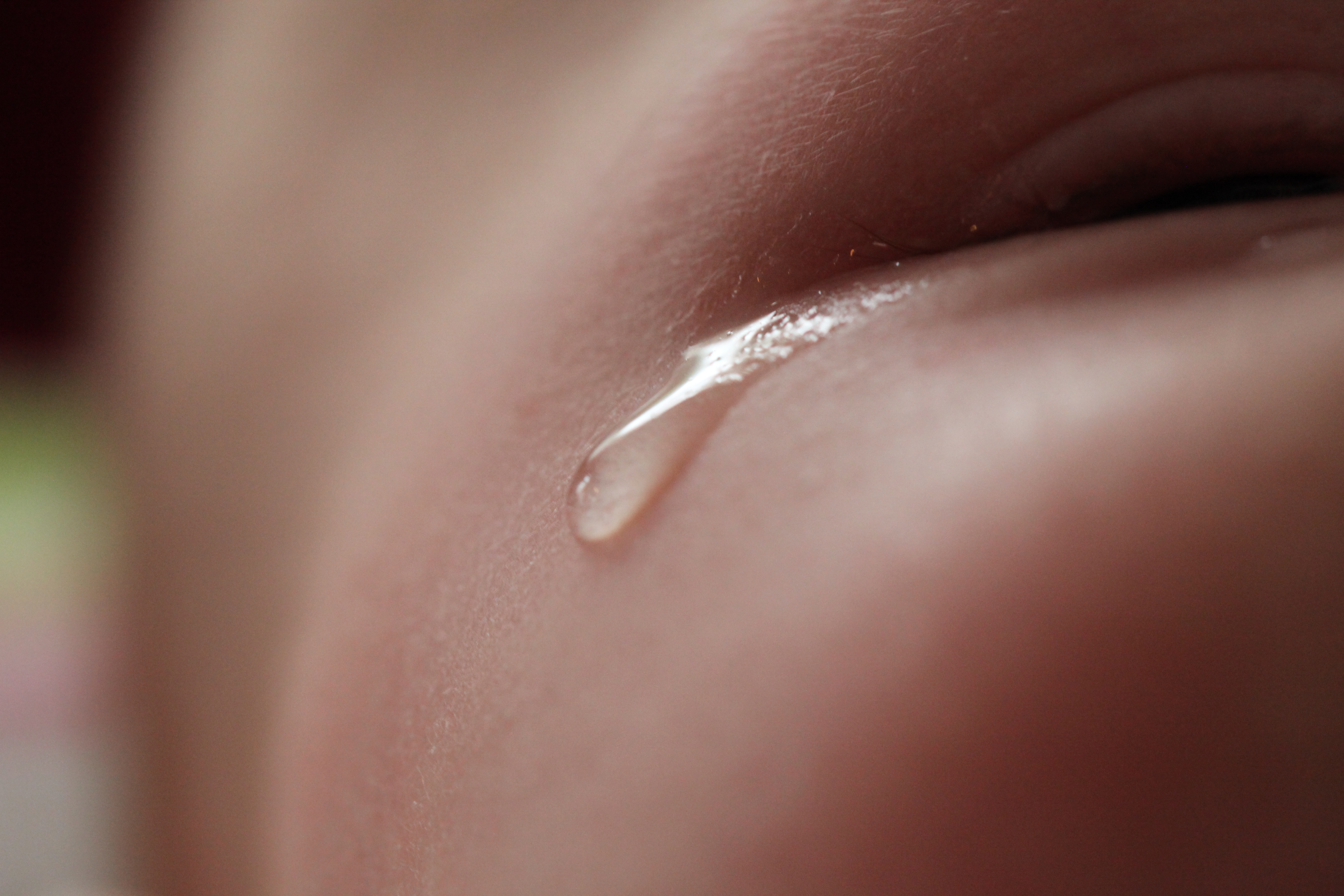While modern society has attributed many social implications to crying, from the perspective of science, it is as natural as any other human bodily function. Tears are most often associated with an emotional response, but consider this: the system that makes you cry while watching a sad movie is the same one that causes your eyes to water during allergy season. How on earth does this happen?
All tears are produced by the lacrimal glands and expelled via the lacrimal duct, either through the corners of the eyes or through the nose. This latter pathway is why your nose may run or become stuffy shortly after tearing up for any reason. Lacrimation, the scientific term for the natural production and secretion of tears, is a response to an irritation of the eyes. On the other hand, crying does not result from any sort of irritation; it is controlled by the limbic system, the part of the brain that handles emotions.
To help distinguish between lacrimation and crying, tears are typically categorized in one of three ways: basal, reflex, or psychic. Basal tears maintain moisture on the surface of the eyeball and are always present. Reflex tears, as their name suggests, are basal tears produced in response to a sudden stimulus or irritation of the eye. Finally, psychic tears are the ones triggered by emotions, and thus the most difficult to fully understand.
Even today, the exact purpose of crying has yet to be determined. However, psychology provides several theories as to why human beings may respond to emotional situations with tears. First, crying is a basic communication tool, hence, why babies cry when they are in need of some kind of attention. In adults, crying can serve a similar function of garnering support from others. Furthermore, according to neuropsychologist Jodi DeLuca, PhD, crying is thought to release some stress hormones in order to calm the body. If this is truly the case, suppressing tears may potentially be damaging to both long-run physical and mental health.
In the eyes of science, tear production is nothing to be ashamed of, even if for emotional reasons. Put simply, “Crying does not indicate that you are weak. Since birth, it has always been a sign that you are alive” (unknown author).
Feature Image Source: Tear by Aldo van Zeeland










